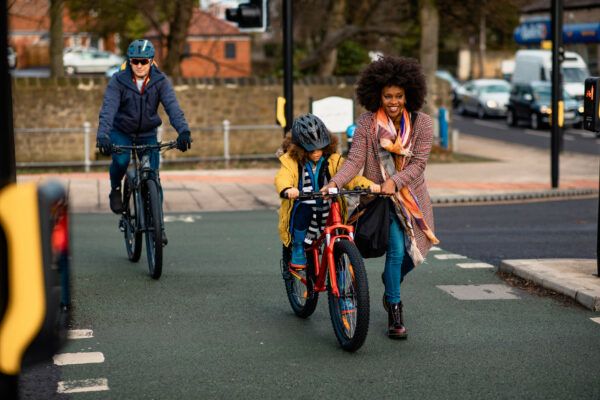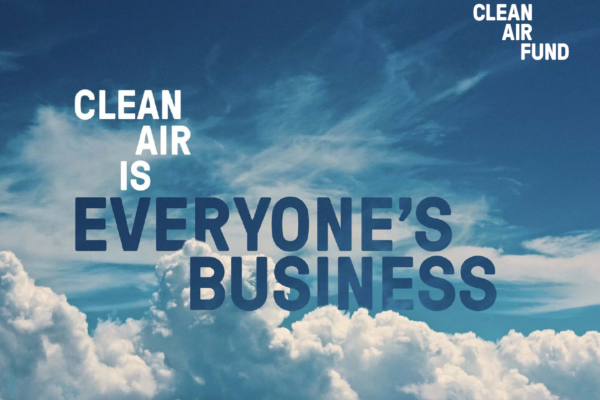From contaminating our environment to damaging our health, poor air quality is a major global challenge. No one is immune to the negative effects of air pollution, but many think this shared burden doesn’t affect their lives.
Clean air is everyone’s business and air pollution is preventable. The solutions to this pressing issue are also key to tackling the climate crisis, fostering inclusive societies and improving childhood development. By working together, we have a golden opportunity to transform our approach to one of the great hidden killers.
Here are five reasons clean air is everyone’s business from our latest report, as well as recommendations for funders and campaigners.
1. Reducing air pollution would limit global warming
Not only do air pollutants and greenhouse gases share the same sources, some pollutants directly contribute to global warming. Reducing these pollutants (called Short-Lived Climate Pollutants) would slow the rate of climate change and help limit warming to 1.5C.
2. Air pollution is bad for our health
Even though you can’t see it, the air you are breathing is probably polluted. Worldwide, 9 out of 10 of us breathe air that is damaging our health. Invisible particles penetrate every cell and organ in our bodies, causing acute and chronic diseases, including asthma, strokes, heart attacks and dementia. Outdoor air pollution causes around 4.2 million early deaths every year.
3. Dirty air is detrimental to childhoods
Our children, and all future generations, deserve to breathe air that is free from toxic pollution. 93% of children under 15 are denied their right to grow up in a clean and healthy environment. Many babies breathe polluted air from their first breath, a critical period when the foundations of growth and cognitive development are being established. Air pollution negatively impacts a child’s physical health, their right to an education and to play. These factors are detrimental to brain development, and contribute to mental health and behavioural issues.
4. The most marginalised are hit the hardest
The worst effects of air pollution are often felt by those least responsible. The poorest and most marginalised communities are most likely to live in congested neighbourhoods or work where they are exposed to toxic levels of pollution. The impact on their health prevents them from attending school or work, which further exacerbates poverty and inequity.
5. Our cities should be liveable and sustainable
Throughout the world, many cities prioritise the movement of cars over people. By 2050, 68% of the world’s population is projected to live in urban areas. However, only half of the world’s urban population has convenient access to public transport. How our cities are designed and, consequently, how we travel, determines the quality of air we breathe, as well as our health, safety and wellbeing as city dwellers.
What funders and campaigners can do
Action on air pollution can address some of our biggest problems at the same time and will pay for itself many times over. Clean air is a critical but unacknowledged secret weapon to achieving the Sustainable Development Goals and building a fairer, greener future. Here are six ways funders and campaigners can contribute to this effort:
- Develop internal knowledge and strengthen your team’s understanding of the benefits of clean air.
- Build and diversify demand for clean air by discussing how clean air benefits your work in your communications, advocacy and campaigning.
- Support the delivery of clean air by applying your issue-specific expertise to the problem.
- Use data and evidence on air pollution to understand the impact of air pollution on your work and vice-versa.
- Engage with the communities you serve to build alliances with the groups that are most affected.
- Help make the case for more efficient funding and projects that address several development goals together.
Read our new publication, Clean Air is Everyone’s Business, for more on the benefits of tackling air pollution, and get suggestions on incorporating clean air into funders’ and campaigners’ work.

